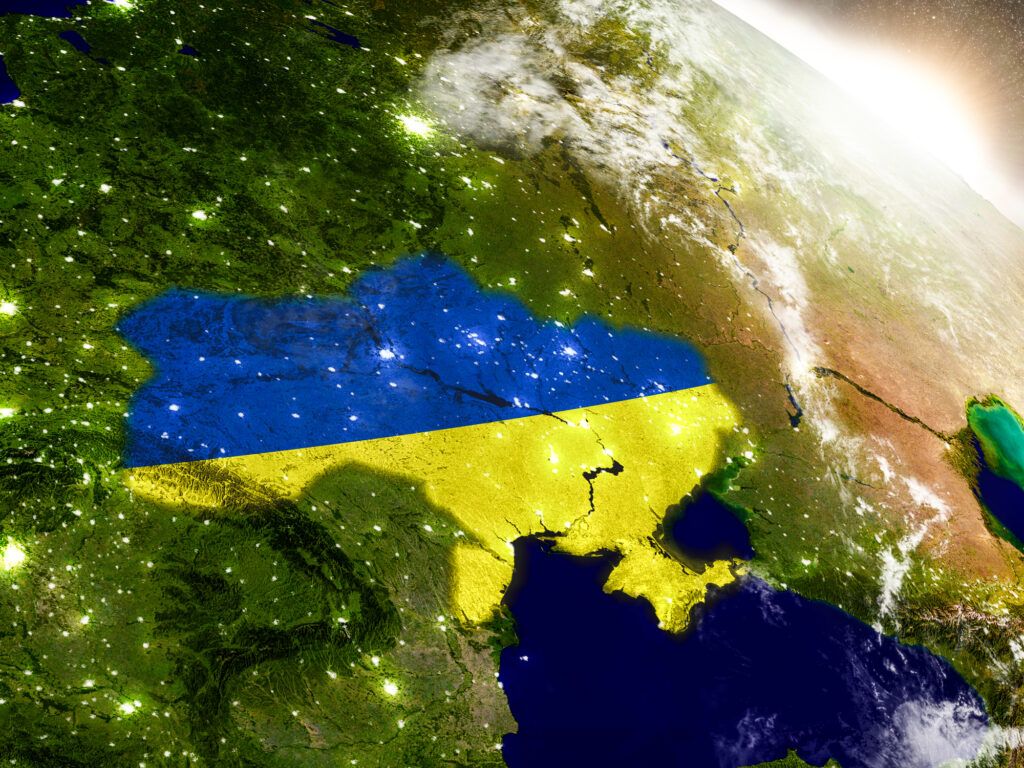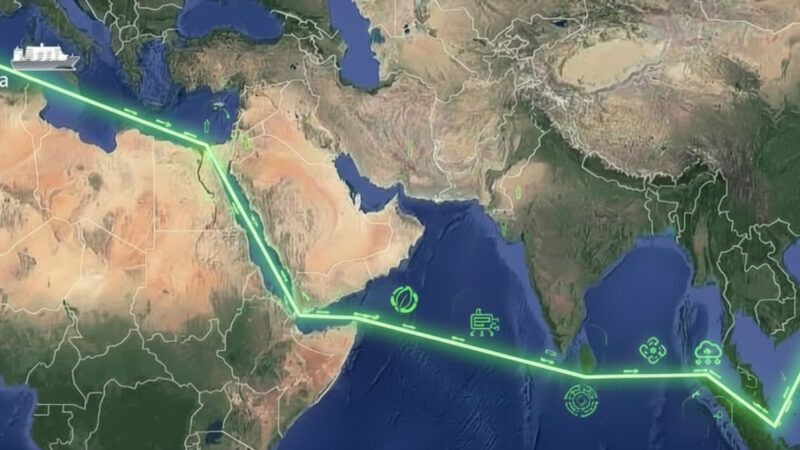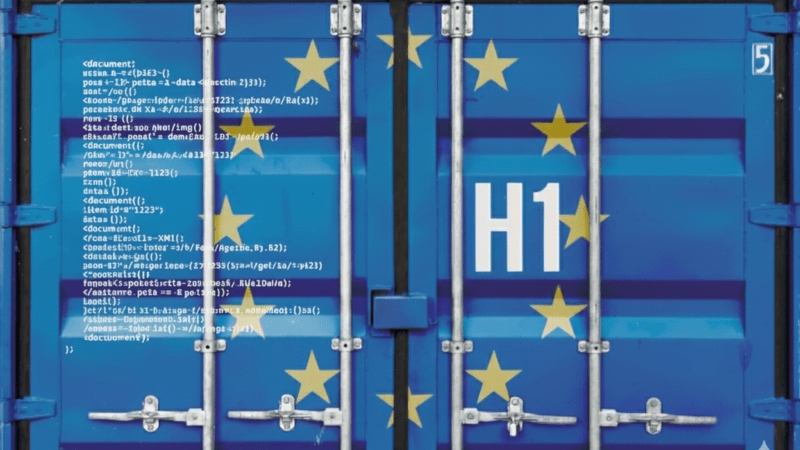 The negative effects of the conflict, aside the humanitarian, extend to other very relevant areas of the global economy, the system of nations and power relations between the major blocs. (GettyImages)
The negative effects of the conflict, aside the humanitarian, extend to other very relevant areas of the global economy, the system of nations and power relations between the major blocs. (GettyImages)

Jordi Torrent is the Strategy Manager at Port de Barcelona.
 The negative effects of the conflict, aside the humanitarian, extend to other very relevant areas of the global economy, the system of nations and power relations between the major blocs. (GettyImages)
The negative effects of the conflict, aside the humanitarian, extend to other very relevant areas of the global economy, the system of nations and power relations between the major blocs. (GettyImages)
The impact of a war: first, the human factor
The war in Ukraine is a human catastrophe of incalculable consequences. The death and refugee figures are already appalling and will only get worse until negotiation prevails. The humanitarian catastrophe, coupled with the destruction of infrastructure and the devastation of the Ukrainian economy will unfortunately be suffered by generations of Ukrainians. Probably also in Russia, though logically to a much lesser extent.
The negative effects of the conflict, however, extend to other very important areas of the global economy, the system of nations and the power relations between the major blocs. Some of these had already suffered considerable damage in recent years as a result of conflicts in the Middle East and the Balkans and trade wars between the global hegemonic powers.
The damage that the war started by Russia will do to international law is another important element to take into account, in addition to that suffered as a result of other invasions and wars such as those in Afghanistan, Iraq, Kosovo and Syria.
The war in Ukraine is also, and this is the focus of this article, the latest of a series of disruptions suffered by the global supply chain which seems to keep adding crises. Before delving into this, I would like to stress that the negative impact is somewhat insignificant compared to the human tragedy.
Supply chains: what else can happen?
International economic relations, international trade and shipping experienced a long period of stability from the late 1970s to the 21st century. As we enter the new century, crises have followed one after the other, especially in the Western world.
The terrorist attacks of September 11, 2001, the Asian tsunami in 2004, the financial crisis in 2008, the wars in Afghanistan and Iraq, extreme weather events, Brexit, global cyber-attacks, Covid-19 and now the war in Ukraine.
In a world in which wars, despite what may seem to be the case, are on the decline, disruptions of all kinds are multiplying and the instability of global supply chains is growing. Disruptions that have gone from being local in the 20th century to increasingly global in the 21st century.
The economic, social and cultural integration of the planet accelerated from the 1980s onwards, following the full incorporation of China and other Asian giants into the global economy. And the emergence of new technologies, especially for data exchange and communication, means that the Chinese proverb that the fluttering of a butterfly can be felt on the other side of the world has become an indisputable reality.
The global supply chain, based on maritime transport, managed to withstand all the disruptions quite efficiently and overall without serious effects on citizens, industry and consumers.
Unfortunately, as of 2021 this has no longer been the case. The supply chain disruptions that have occurred in the past year, especially in the West (freight rates, loss of port of call reliability, blank sailings, port closures in China and/or congestion in American ports, empty equipment shortages and decompensation, shortages of essential products and materials, lack of truck drivers, energy prices, etc.) are having a substantial impact on industry and the public.

The added impact of war
The instability of supply chains is causing many companies, for the first time, to consider substantial changes to their strategies in relation to suppliers, means of transport, manufacturing sites and distribution channels.
In this context, Russia's invasion of Ukraine will only further affect already strained global supply chains. The war comes on top of the persistent dysfunctions caused by the Covid-19 pandemic, which are still significant if we take into account the strict closure, these days, of entire Chinese cities and port districts; the chronic lack of semiconductors for the automotive industry; the price of electricity; the shortage of some raw materials; the unreliability of port calls or the high price of fuel.
The war in Ukraine will have an added impact on some of these disruptions. It will accelerate certain decisions and trends that were already appearing before the pandemic and accelerated by it, and will lead to some additional changes.
In any case, except for the impact that the war may have on the supply of agricultural products, on the sources of fossil fuels in the European Union (EU) and on the escalation of prices in general and, in particular, of energy, it does not seem that it will introduce major changes in the latent trends in our sector.
The Ukraine war will accelerate certain decisions and trends that were already noticeable before the pandemic
Possible consequences of the Ukrainian crisis
As always, predicting what might happen when a disruption of this caliber occurs is very complicated. Let's try, however, in a daring exercise.
- China, Europe and… Turkey
The main effect of the crisis will further strengthen the role of China, and Asia in general, as the world's main economic and political bloc. Russia and other Central Asian republics will be forced to look even more to the East rather than to Western Europe and the United States.
The already declining influence of the West throughout Eurasia will decline further. In contrast, trade relations in the East, led by China, Russia and the rest of the Central Asian republics, will increase.
The conflict could accelerate the opening of the Arctic Route to connect Russian natural gas and oil fields in the Arctic zone with China. This would open up a truly massive alternative shipping lane between Russia and the rest of the world, especially for raw materials. In this area, we must be very attentive to the role that Turkey, which controls the Bosporus entrance, may play in the coming months and years.
- Instability of maritime transport
The war will not help stabilize shipping and could therefore contribute to prolonging its dysfunctions, which are unlikely to be resolved at a time like the present one, of widespread confusion and stupor over the war in Ukraine.
Rising fossil fuel prices will increase shipping prices, although the war should also cause a pullback in demand. This could act as a counterbalance as it will force more competition in maritime supply in the face of weak demand, pushing shipping prices down.
- Cost increase of agricultural products
Given the great weight of Ukraine and Russia as global grain suppliers, the conflict is pushing up grain prices. The drought affecting other producing countries may aggravate the need for increased imports in many places that cannot be met by the two countries at war.
- Trains China-Europe
The exponential growth since 2013 of rail freight between China and the EU (1.5 million TEUs were transported in 2021 compared to 500,000 TEUs in the pre-Covid period) is likely to moderate and, depending on sanctions on Russia, could even stop altogether, although only a tiny fraction of trains cross Ukraine.
At the time of writing, the vast majority of Eurasian services were still operating normally despite the outbreak of the conflict. And rail traffic between China and Russia and the rest of the Central Asian republics could grow even more.
- Bringing production closer to the European Union
As has been the case for some years now, some companies are moving the manufacture of certain products (textiles, automotive, etc.) closer to the EU (mainly Morocco and Turkey) and within the EU to eastern countries, in order to cut transit times and avoid inter-oceanic disruptions in the supply chains.
The war in Ukraine will likely be a further incentive for many companies to continue to delve deeper into this area. At the same time, the conflict could delay or suspend some investments by Asian companies in Eastern European countries given their proximity to the conflict zone.
- Accelerating the energy transition and seeking alternatives to fossil fuels
Energy transition plans, especially in European countries, are likely to accelerate. The war has again made evident the risk posed by the extreme dependence on fossil fuels in countries such as Russia and Algeria (also unstable).
The need to find alternative clean fuels (ammonia, hydrogen, etc.) is more pressing than ever. Not only to combat climate change. Renewable energies (solar and wind) could also benefit from a major boost.
In the meantime, the search for greater diversification in natural gas suppliers will accelerate. This already implies a substantial increase in LNG maritime traffic in ports, particularly in Spain, from which countries such as the United States, Qatar and Trinidad and Tobago could benefit.
- Greater control over logistics chains
This still embryonic trend could also be accelerated by the major brands. Some of them are chartering their own ships (Amazon, Walmart, etc.), buying containers and taking on full management of their logistics chains. Political instability could push many others with sufficient financial muscle to do the same.
As with the pandemic, the impact of the war on supply chains, the logistics sector and ports will depend to a large extent on its duration. If the open conflict is short (which does not imply that a low-intensity conflict such as the one that has existed in eastern Ukraine for more than five years cannot persist), which is apparently the most likely scenario, the impact will also be limited.
If it is long, the negative effects on the European economy and its logistics will be more profound and potentially destabilizing.
All this, of course, provided there is no intended or unintended nuclear catastrophe.






